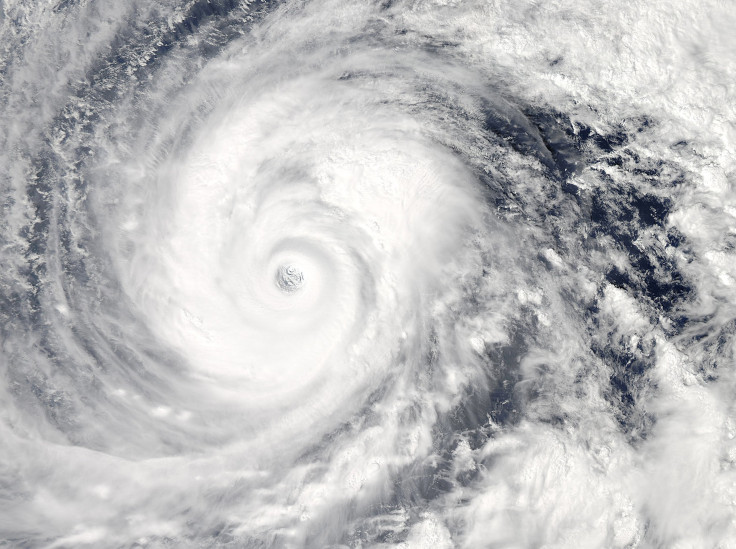Super Typhoon Vongfong: Japan Braces For Strongest Storm Of The Year As It Moves North

Japan is bracing for its strongest storm of the year, super Typhoon Vongfong, which is moving north with the threat of strong winds and torrential rain, media reports said Friday. The super typhoon is reportedly following the path of the deadly Typhoon Phanfone, which reportedly claimed the lives of more than nine people in Japan on Monday.
Vongfong is reportedly expected to make landfall on Okinawa, an island chain about 1,000 miles southwest of Tokyo, on late Saturday or early Sunday, BBC reported. The typhoon is reportedly carrying winds up to 160 miles per hour. Vongfong, which has been labeled a Category 4 typhoon by Tropical Storm Risk, which predicts storms worldwide, is expected to weaken to a Category 3 storm by Saturday and to Category 1 before hitting the western island of Kyushu on Sunday, Reuters reported.
"There is no question that it is an extremely large, extremely powerful typhoon," an official at Japan's Meteorological Agency, or JMA, told Reuters. "It's the strongest storm we've had this year, definitely, although it has lost some strength from its peak."
Vongfong reportedly picked up strength while moving through several South Pacific islands including Guam where it caused little damage, The Associated Press reported.
"It's safe to say Vongfong is the strongest storm on earth since Haiyan last year," Michael Lowry, storm specialist for The Weather Channel, said. Haiyan claimed the lives of more than 6,000 people when it hit the Philippines in November 2013.
Earlier this week, Typhoon Phanfone hit parts of Japan prompting evacuation advisories for hundreds of thousands of people.
The JMA official said it was unusual for two strong typhoons to hit Japan in such close succession.
"It's more coincidence than anything else, mainly due to the way the high pressure systems are located off Japan this year,” the official said, according to Reuters.
© Copyright IBTimes 2024. All rights reserved.











